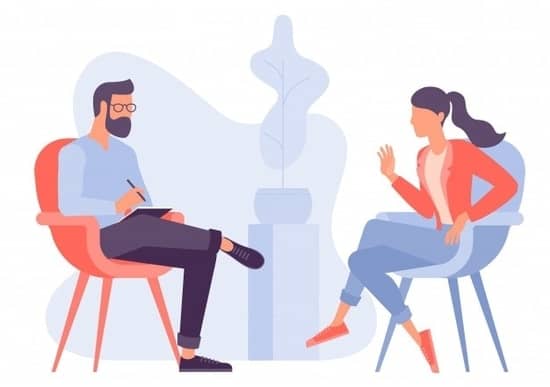Online therapy in London is becoming increasingly popular. The number of people who are turning to the Internet as a source of information and advice for their problems has been steadily increasing over the past decade, and there is no sign that this trend won’t continue in years to come.
This development can largely be attributed to the fact that more and more people prefer communicating online to communicating face-to-face. This is especially true of younger generations, which are the most active online, but it’s also apparent among older users. With online therapy in London becoming more and more popular, there naturally comes a great deal of skepticism; after all, when something works for millions of people, can we really say that it doesn’t work for us? Is it really that bad and should we try to resist embracing new technologies or can we actually benefit from these tools?
![]() There is no greater agony than bearing an untold story inside you.
There is no greater agony than bearing an untold story inside you. ![]()
Chat or Video Consult online with therapist
In London, a report from a mental health commission that was issued at the end of 2015, approximately 3.4% of people aged 16 to 64 were receiving treatment for a common mental disorder in the 12 months before the survey.
The document also found that these types of disorders are more prevalent among women than men, and among those with lower levels of education. The rates were also higher for black and minority ethnic groups compared to white people. The report from the Commission on Ending Child Homelessness in London reported 42% of children living in temporary accommodation have been exposed to domestic abuse or violence, while 31% have experienced sexual abuse or exploitation.
An estimated 22% of adults aged 16 to 64 in London smoke, which is more than the national average. There are also an estimated 43.9% of adults who drink above the recommended guidelines, and 26.8% engage in regular exercise (less than half a day per week). The vast majority of adults (71%) were deemed to be of a healthy weight.

Maureen Gaynor helps people with their anxiety and depression because she has a lot of experience and is very qualified. She can also help people overcome obsessive-compulsive disorder, attention deficit disorder, addiction, and eating disorders. She uses cognitive behavior therapy, which means she uses your thoughts and feelings to help you overcome your problems.
Daniel Robbins believes that everyone should be able to learn how to feel good about themselves without using substances like drugs or alcohol, which can make the problem worse in the long run. He specializes in treating adults who are struggling with drug misuse or addiction, anxiety, depression, work-related stress, or low self-esteem.
Thom Parkin uses psychodynamic theory to treat people who have difficulties reaching their potential due to past trauma or abuse. He specializes in working with people who have survived childhood trauma, sexual abuse, violent crime, and/or bullying.
Dilys Daws uses systemic therapy to help her clients resolve the difficulties they are currently experiencing as well as those from their past that may be affecting them now. Her approach is integrative, meaning she works collaboratively with you so you can find a therapy technique that most closely suits your needs.
David Veale has a special interest in anxiety disorders such as body dysmorphic disorder, health anxiety, and social anxiety disorder. He also treats people who are struggling with addiction, obsessive-compulsive disorder, depression, and low self-esteem.
Most common therapy approach in London is where the therapist challenges your negative thoughts about you and the world. He tries to alter unwanted behaviors or treat disorders such as depression.
Second most common therapy approach in London is which the therapists teach behavioral skills (mindfulness & emotion regulation) to help clients enhance motivation. DBT is often used for mental health issues including eating disorders, PTSD, personality disorder, self-harming notions.
3rd most common therapy treatment in London focuses on self-actualization in the face of people’s challenges. Existential therapy aids clients in confronting hard and distressing truths about life and death.
ACT Therapy in London, Art Therapy in London, Behavioral Therapy in London, Contemplative Therapy in London, Play Therapy in London, EMDR Therapy in London, Emotionally Focused Therapy in London, Existential Therapy in London, Experiential Therapy in London, Gestalt Therapy in London, Hypnotherapy Therapy in London, Music Therapy Therapy in London, Narrative Therapy in London, Psychodynamic Therapy in London, Psychoanalytic Therapy in London, and Somatic Therapy in London.
Psychologists or therapists in London help people understand and handle different life problems and mental health issues.
They diagnose and treat mental disorders, learning disabilities, and behavioral problems.
You should expect to pay between $100 and $250 for a face-to-face therapy session with a London area therapist. Online therapy in London is relatively affordable and therapists charge between $30 to $ 150. You can book both online and face-to-face sessions with a therapist in London via MantraCare.
In case you are looking for free therapists or free therapy, you can choose to call the London free helpline number. There are a few online therapy options that can be free or low-cost. At MantraCare, therapy can cost you as low as $10.
Anyone interested in working as a therapist or counselor in the London area must earn at least an accredited master’s degree in counseling or social work. London also has some continuing education requirements, and every counselor or therapist is required to know all the rules and laws that pertain to their profession.
Listing on MantraCare is Free for therapists from London or any part of the world. Therapists or Psychologists just need to submit their details with certificate via the Add listing button.

The mission of TherapyMantra is to provide inexpensive, accessible, and professional online mental health care to the individuals all around the world.